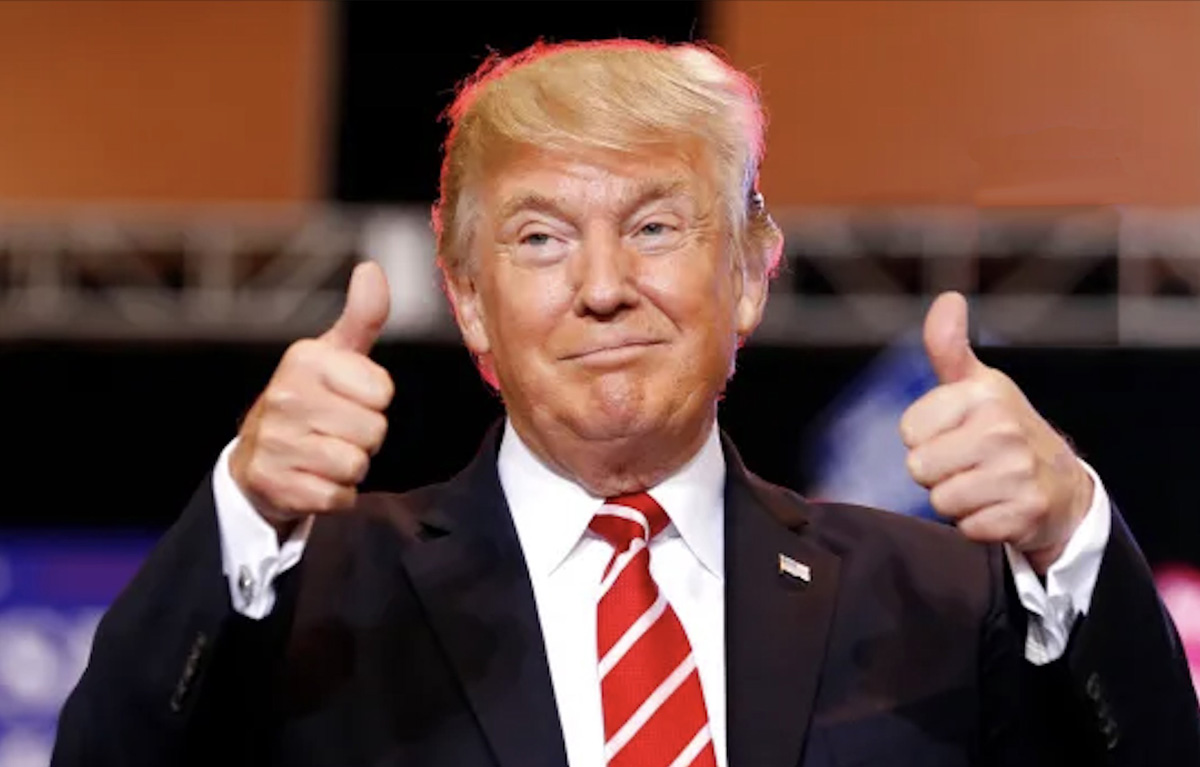Over the past seven years, minorities have suddenly begun a steep increase in identifying as Republicans and a corresponding drop in aligning with Democrats and a party realignment that had been a slow progression since the 1980s has picked up some serious momentum.
Do you wonder which national Republican hit the scene seven years ago? Did his last name start with a “T”?
You bet it did.

The data shows that since Ronald Reagan, minorities had begun a slow but obvious move away from the Democrats. But in 2016, that trend skyrocketed and has not stopped.
John Burn-Murdoch recently took to his XX account and posted a long series of graphs that all show that Democrats have lost support in direct relation to the minorities that Republicans have gained.
His thread is extremely important. Check this out:
Last week, an NYT poll showed Biden leading Trump by less than 10 points among non-white Americans, a group he won by almost 50 points in 2020.
Averaging all recent polls (thnx @admcrlsn), the Democrats are losing more ground with non-white voters than any other demographic. pic.twitter.com/3pORRoAOPQ
— John Burn-Murdoch (@jburnmurdoch) March 11, 2024
And America’s gold-standard national election surveys show a similarly sharp decline, with non-white proximity to Democrats now at its lowest since the 1960s, before the civil rights movement and the 1964 election which aligned Black voters with the Dems and against the GOP pic.twitter.com/6rR70oieTJ
— John Burn-Murdoch (@jburnmurdoch) March 11, 2024
The bond between young Black Americans and Democrats is far weaker than among older cohorts.
I don’t think everyone appreciates that the familiar "young favour Dems, old favour Republicans" gradient we see in the US population overall is *inverted* among the Black population. pic.twitter.com/sys5mG5uvD
— John Burn-Murdoch (@jburnmurdoch) March 11, 2024
The changing image of the parties regarding class and income is also a factor.
In 2020 the richest third of voters favoured the Dems for the first time, and the Republicans improved with the poorest. The GOP now appeals to working- and middle-class voters of all ethnicities pic.twitter.com/OAgWCI92uB
— John Burn-Murdoch (@jburnmurdoch) March 11, 2024
Much more ominous for the Democrats is a less widely understood dynamic:
Large numbers of non-white Americans have long held much more conservative views than their voting patterns would suggest.
Their values are very much *not* aligned with the party.
— John Burn-Murdoch (@jburnmurdoch) March 11, 2024
To show you what I mean by that, I will refer to the brilliant work of @IsmailWhitePhD and @ChrylLaird, whose 2020 book Steadfast Democrats explores why Black Americans historically voted Democrat in such large numbers *despite* often holding very conservative views. pic.twitter.com/RgErB3Ttty
— John Burn-Murdoch (@jburnmurdoch) March 11, 2024
This anomaly has historically given Dems a huge boost, but it has begun to unwind.
In 2012, the vast majority of Black conservatives still identified as Democrats, but that has since fallen to less than half. Latino and Asian conservatives show similar but less sudden trends pic.twitter.com/F6nnM5JWa3
— John Burn-Murdoch (@jburnmurdoch) March 11, 2024
We can also use this chart, which I adapted from White & Laird and @PatrickRuffini’s excellent book Party of the People.
It shows people’s self-reported political views from left to right, and their Rep-Dem margin top to bottom
Liberals vote Dem, conservatives vote Rep. Simple. pic.twitter.com/Lg89WfKAnn
— John Burn-Murdoch (@jburnmurdoch) March 11, 2024
But just look at the realignment since then:
Latino conservatives are now a very solidly Republican group, and Black conservatives favoured Republicans over Democrats for the first time in 2022.
All groups are increasingly matching vote choice to ideology. pic.twitter.com/7YSmmBdwm1
— John Burn-Murdoch (@jburnmurdoch) March 11, 2024
So this explains the big shifts we’re seeing, but why is the racial realignment happening *now*?@IsmailWhitePhD & @ChrylLaird find that social pressure is key.
When everyone around you votes a certain way, you feel pressure to do the same. Political norms are hard to overcome
— John Burn-Murdoch (@jburnmurdoch) March 11, 2024
I’ve extended their analysis and I find the same thing, with a similar effect among Latinos.
When people have more diverse social groups, there’s less social pressure to vote for the dominant party in the community, so non-white conservatives feel they can vote Republican. pic.twitter.com/0TNPowqbuK
— John Burn-Murdoch (@jburnmurdoch) March 11, 2024
Non-white Americans are in a similar position.
Strong community norms have kept them in the blue column for decades, but those forces are weakening.
The surprise is not so much that these voters are shifting their support to align with their beliefs, but that it took so long.
— John Burn-Murdoch (@jburnmurdoch) March 11, 2024
And crucially, that weakening of political norms doesn’t only come from people of other races.
As the number of Black Republicans has risen from ~5% to 15% (the figure among young Black adults today), the Democrat-voting norm is eroded and the stigma of voting Republican reduced
— John Burn-Murdoch (@jburnmurdoch) March 11, 2024
And ‘a rapid shift in [voting] behaviour as people who were previously masking their [political] beliefs discover that others hold the same views as they do’ fits well with these charts.
Viewed in this light, the size of the shifts in current polling is entirely plausible. pic.twitter.com/FERdM9bv7v
— John Burn-Murdoch (@jburnmurdoch) March 11, 2024
But if you take one thing away from this thread:
The left’s challenge with non-white voters is much deeper than it first appears.
A less racially divided America is an America where people vote more based on their beliefs than their identity. This is a big challenge for Dems.
— John Burn-Murdoch (@jburnmurdoch) March 11, 2024
Follow Warner Todd Huston on Facebook at: facebook.com/Warner.Todd.Huston, or Truth Social @WarnerToddHuston





